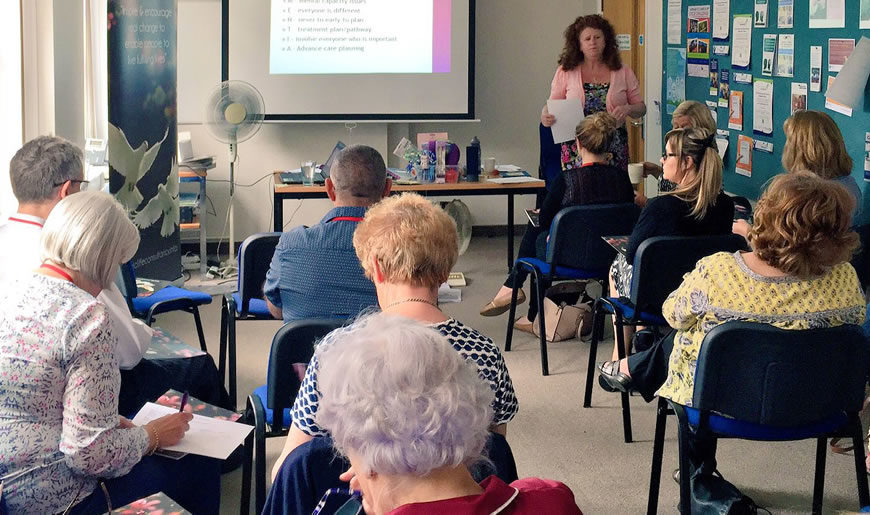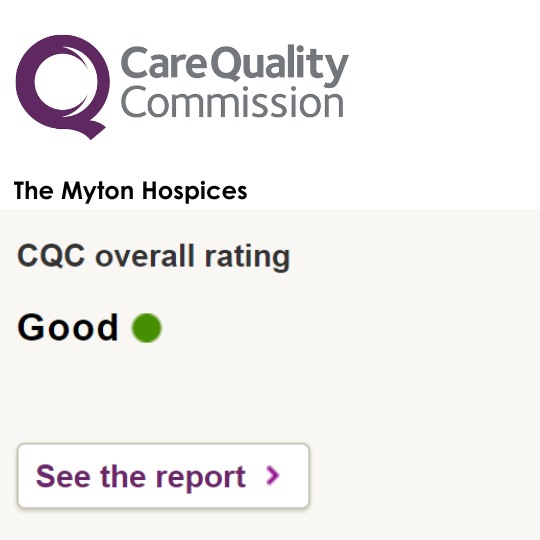On Thursday 23rd June, Hazel Ratcliffe and Jill Turley conducted a series of Dementia Awareness sessions at Warwick Myton Hospice for staff and volunteers.
I have always been a reasonably curious person and since finishing university last June, I can’t resist the opportunity to learn more about subjects or topics that have always interested me- dementia happens to be one of those subjects. So at 2pm, I grabbed my notebook and pen and headed over to the third session of the day to find out more about the medical condition which I learned currently affects more than 820,000 people in the UK.
To ease us into the topic, we explored some of the symptoms associated with dementia which include difficulties remembering, making decisions, expressing thoughts and understanding what others are saying. Like most conditions, dementia does not discriminate and can affect people of all ages, genders and races.
During the session, Hazel provided some facts about dementia, on a global and national level, all of which I didn’t know beforehand and at times was very shocked to discover. For example, did you know that the youngest person to have been diagnosed with dementia is 9 years old? No, neither did I. Like many I believed dementia was a condition that only affected older people but I also learned that this is a myth.
Prior to the session, I also thought that dementia was classed as a disease when in fact it is a term used to describe a group of symptoms which are caused by a number of different conditions such as Alzheimer’s disease, Parkinson’s and Lewy body. As a hospice, we regularly dispel myths and it seems that dementia faces a similar challenge in addressing common misconceptions associated with this group of symptoms.
Whilst learning more about dementia, we explored the changes that we can all make in our daily lives to create a society which takes dementia patients and their needs into consideration. Suggestions included making sure that pathways are unobstructed and ensuring that signs are visible and clear. Flooring can also play an important role in creating a dementia friendly environment and it was therefore suggested that you should avoid black mats, busy carpeting or shiny floors. Rather than encouraging those living with dementia to adapt to our world, why can we not try to adapt to theirs?
Physical changes are not the only steps we can take to support those living with dementia.
We can also alter our attitude towards the condition. As a society, we can try to be more understanding and patient with those living with dementia as well as emphasise their achievements instead of focussing on what they might struggle to do. You can also help raise awareness of dementia by becoming a Dementia Friend. Dementia Friends is an initiative which aims to alter the way people think, act and talk about dementia and anyone interested is more than welcome to join the group.
As Hazel mentioned during the session, dementia is everybody’s business. The number of those affected by dementia on a global scale is expected to double in the next 20 years and I believe it is therefore our responsibility to raise awareness of dementia as well as try and create a friendly, responsive and supportive environment for those living with the condition.
For more information about dementia,
including services and support available across Coventry and
Warwickshire, or to find out how you can become a dementia friend please






